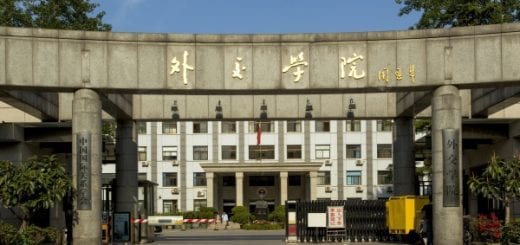The Fog of Peace: Who Profits from Economic Sanctions?
Vasuki Nesiah
The origin myth of our discipline is situated in the transition from the thirty-year war to the peace of Westphalia, from the insecurity of the state of nature to the peace of civil society, from Europe mired in the deprivations of war, to an era of global economic dominance. International law’s virtue inheres in this dichotomy between the logic of war and the logic of peace and the salutary benefits of that progress narrative. The dichotomy is also central to the contemporary story of sanctions and its framing as the humanitarian, peaceful policy. The most storied dramatization of the brutalities of the thirty-year war was Mother Courage, the protagonist of Bertolt Brecht’s play of the same name. Written in the immediate aftermath of World War II but situated in the thirty-year war, the play has long been read as a pacifist protest against the devastations of war. Yet arguably, the radical thrust of Mother Courage is in challenging the pious dichotomies that fuel the modern framing of economic sanctions – the dichotomy between the domain of war and the domain of peace, between military relations and economic relations. Always hustling for profit in the trenches, Mother Courage treats war and trade as intertwined transactional spheres – weapons and commodities, life and death, fighting and trading. Her irreverence for the pieties that contrast the domain of war from the domains of peace or trade resonates with the argument of this piece. The history of sanctions shows us that sustaining the myth of these dichotomies exacerbates the precarity of the most vulnerable and is to the profit of the most powerful actors, whether the currency is battlefield victories or economic gain.
The devastating impact of the sanctions regime imposed on Iraq has been well documented; the embargoes on food, medicine, and other essentials have produced consequences equivalent to a genocidal war. While the scale and intensity might vary, the sanctions against Cuba, Venezuela, Gaza, and Iran have also been ruinous. Yet, the discourse around sanctions still contrasts them with the scourge of war. For instance, the UN Security Council describes the 14 sanctions regimes it has imposed in terms it seeks to celebrate: “supporting the political settlement of conflicts, nuclear non-proliferation, and counter-terrorism.” Against the evidence of the wreckage caused by sanctions, its supporters emphasize smart sanctions and humanitarian carveouts. Yet we repeatedly find that the so-called humanitarian economy is deeply interconnected with the non-humanitarian economy in ways that are difficult, if not impossible, to disentangle – i.e., what I refer to as the Merchant of Venice dilemma – the impossibility of carving out a pound of flesh without a drop of blood. Yet defenders of the sanctions regimes that have been imposed in the last decades have framed sanctions through dichotomies between the realm of war and the realm of peace or the realm of the economic; indeed, these are treated as intertwined, such that the sphere of war stands in contrast to the sphere of trade as a sphere of peace. The capitalist peace thesis has a long lineage from Montesquieu to Adam Smith to the ranks of contemporary
These intertwined dichotomies and associations do much work to the advantage of powerful actors such as colonial powers seeking to clear the path to colonization and expropriative land dispossession in the name of peace and free trade. For instance, from the time of Francisco Vitoria, international law’s imbrication with colonial dispossession has been tied to this notion that trade was an expression of pacific hospitality and its refusal an expression of hostile barbarism. Turning the definitions of aggression and self-defense on their head, Vitoria argued that if indigenous people did not want to trade with Spain, that was, de facto, an act of hostility that justified Spain’s use of military force. That military force advanced Spain’s imperial expansion to devastating effect. Huge Grotius advanced a parallel argument in his representation of the Dutch East India Company’s trading interests in the Indian Ocean in ways that allowed the Dutch a ‘self-defense’ cover to wage war to advance their imperial ambitions. The symbiotic relationship between war and the dichotomous construction of war with trade and peace lived on in colonial governance as economic sanctions emerged as a favored weapon of colonial authorities. Colonial administrators across the world expanded imperial authority or crushed rebellions by cutting off trading rights and closing markets, squeezing food supplies, and erecting blockades. These policies resulted in famines amongst the colonized – sometimes to threaten them into compliance, or as punitive measures against anti-colonial resistance, other times as strategic policies to expand the boundaries of empire, and yet other times (the Bengal famine being one example) as some mix of wartime policies, with consequences that were intended and unintended.
Sanctions provide a direct military advantage to powerful actors even outside the colonial theater by carrying an old colonial logic of not being regulated as an international armed conflict. Because they are billed as a tactic of peaceful relations, they are not subject to the laws of war even though they wreak war-like havoc. As Nicolas Mulder notes, after the establishment of the League of Nations, sanctions became a weapon of peace, not requiring a declaration of war and often slipping into a normalized domain of foreign relations. Thus, if sanctions came to be characterized as an alternative to war, “[t]hey became an alternative not just by shrinking the definition of war (to self-defense), but also by expanding what was allowed in times of peace.” For instance, the international humanitarian law (IHL) requiring military action to be targeted and proportionate does not regulate sanctions. Thus, sanctions have often been a form of untargeted collective punishment and notoriously disproportionate even within its own terms. Similarly, the distinction between civilian and combatant is trumped by the dichotomies of war and peace tactics, so the distinction applies to the former but not the latter. Thus despite devastating costs to civilians, those imposing sanctions have wide latitude to craft punitive and sweeping sanctions policies because they enjoy the legitimacy attached to demilitarization and humanitarian purpose.
From naval blockades to economic sieges, there is a long history of weaponizing the economic sphere. Classical accounts of the Peloponnesian war often begin with the Magaria Decree, a set of economic sanctions imposed by the Athenians against Megaria. These sanctions caused enormous suffering and strengthened the winds of war by provoking Sparta while entrenching Athenians into their positions in characterizing Megaria as enemy territory. Thus ironically, rather than being the humanitarian substitute for war, sanctions may prepare the ground for war by interpolating the people targeted for sanctions as military targets. In today’s world, where counter terrorism discourse has been mobilized to render entire populations suspect, those targeted for sanctions have been rendered akin to human shields standing in the crosshairs of a battle for humanity where the discourses of humanitarian reason and counter-terrorism converge. This convergence has also contributed to eroding the distinctions between militants and civilians, and proportionate and disproportionate action. As citizens of so-called rogue states, civilians targeted for sanctions are often rendered “legitimate targets” endangered by their states rather than by those geopolitically positioned to impose sanctions in the name of international peace and security. For instance, sanctions were imposed on Iraq at the same time as the first Iraq war in August 1990. The U.S. administration found it difficult to mobilize continued support for the shock and awe devastation of the 1990 war, and it became easier for the administration to declare Kuwait liberated and end the military campaign. In contrast, the Security Council’s sanctions regime continued functioning and helped normalize the imposition of devastating consequences on the Iraqi people. While their consequences for human life and suffering may be equally ruinous, the quotidian rhythm of sanctions’ necropolitical impacts lacks the drama of war and seldom provokes mass demonstrations. Moreover, the ongoing sanctions regime prepared the ground for the next Iraq war in 2003. Sanctions perform what Mulder refers to as a form of “outcasting.” Long before the 2003 invasion of Iraq, the sanctions regime had already branded Iraq as an outcast nation. Long before Iraq’s markets and hospitals were bombed, they were starved of supplies. Sanctions normalized Iraqi suffering and presented its people as a ’thinkable’ target. The low-key, normalized, off-the-radar nature of sanctions helped interpolate the Iraqi people as a legitimate target, making them available for the 2003 bombing, which catalyzed a more extended and devastating militarization and occupation. The neocolonial milieu of that moment – from the episteme of counterterrorism and rogue states to the (related) racism and islamophobia that put wind in the sails of the West’s interventions in Muslim-majority countries – channeled the discourse and practice of sanctions to perform this kind of interpolation. Moreover, the unipolar geopolitical backdrop permits the U.S. to arrogate to itself the authority to name ‘enemies of the people.’
The geopolitical dynamic of sanctions is especially significant because they are not only the backdrop to who has the power to impose sanctions, but once imposed, sanctions can contribute to further enhancing the power of those same actors. The most expansive sanctions regimes in the world have been imposed by the most powerful countries in the world, and they have also been its greatest beneficiaries. For instance, the sanctions imposed against countries such as Russia, Iraq, Cuba, Gaza, and Iran are symptomatic of the dominant world system and reflect the broad contours of American economic and military capital. They have also contributed to shaping an imperial world system to reproduce, legitimize, and even further strengthen the dominant economic and military order. This form of accumulation often happens directly – for example, when sanctions contributed to the military campaign to control Iraq’s oil fields. There can also be collateral effects and indirect gains. As the NYTimes put it, this “The bleak situation” confronting these countries “is part of the collateral damage from Russia’s war with Ukraine and the Fed’s fight against inflation, and it highlights the global connections that have left the fate of countries around the world inextricably linked to decisions made in Moscow and Washington.” The indirect effect of this chain of events is that that it has left these countries especially dependent on International Monetary Fund (IMF) assistance for debt restructuring and, therefore, especially deferential to IMF conditionalities and donor countries’ demands. For countries like Sri Lanka, Ghana, and Pakistan, sanctions on Russia have exacerbated economic precarity and thereby weakened their bargaining position with donor countries and international financial institutions. Thus bargaining in the shadow of sanctions has further entrenched terms of trade and aid that benefited the winners of the dominant economic order.
The “butterfly effect” of sanctions on another country in another continent is akin to a war on the world’s poor, without powerful countries having to carry the legitimacy or material costs of armed conflict. Instead, support for the economic isolation of Russia is treated as a brave form of economic trench warfare; championing sanctions can be a way of virtue signaling a crusade against tyranny in a climate where there is little attention paid to the devastating distributive effects of sanctions. One appreciates Mother Courage’s insight that focusing on individual virtue can distract us from the evils of the system. After all, “In a good country, virtues wouldn’t be necessary. Everybody could be quite ordinary, middling, and for all I care, cowards.”
Vasuki Nesiah is a Professor of Practice at NYU Gallatin.
This piece is part of a Symposium on Third World Approaches to International Law & Economic Sanctions.



